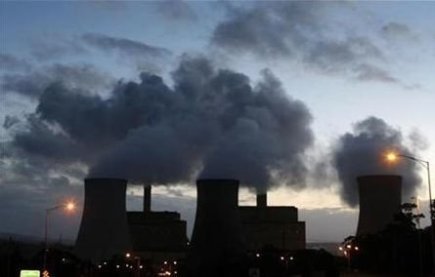No one in their right mind would describe me as a patient person, nor an economist, I do however fit the bill of bleeding heart environmentalist and pragmatist. Having said this I can’t express the frustration I felt in reading page upon page digesting and regurgitating the difference of opinion on how to best tackle the immense challenge of curbing greenhouse gas emissions. The frustration came not from the subject itself by any means, but from the misguided notion of the authors of our readings that more than a minuet percentage of the population could remain focused on what they were saying for more an a split second.
Greenhouse gas emissions, as we have for the most part excepted, are leading to disasters across the globe that no longer simply mean the poorest of the poor in Haiti may lose their homes but that million dollar condos lining Hawaii, Manhattan, and China could be next- this gets our attention. This attention has lead to the comparison of proposed solutions this being cap and trade v. taxation of emissions. I find these two proposals fascinating on a theoretical sense. In ways, which I could write a boring novel on, they appear to be metaphor for our contesting views on economic systems at large – should taxation fix the issue giving the government the ability and supposed financial means of controlling an issue, or should the free market which Americans hold dear be given the assignment in hopes that human nature in it’s self interest will fix things.
In the end none of the articles sold me on one system over another. I was left with questions and concerns that I didn’t feel either system got to the heart of.
1. Both means seem to leave open huge possibilities for corruption.
Taxing, as mentioned in Alan Durnings Sightline article, may be “rendered ineffective through loopholes and incentives”. While Cap and trade leaves the possibility of grandfathering. Additionally, the process of slowly creating stricter requirements seems that it would favor companies that could initially purchase multi-year permits in other words the largest carbon producers this is all meant to be geared towards.
2. The issue of the international arena.
The Wall Street Journal’s article including Robert Stavins and Steven Hayward points this out. As Hayward argues “Even if the U.S. and other industrialized nations somehow achieved and 80% target, nations like China and India need to be held to big emission cuts. Why? Even if the U.S. and other industrialized nations somehow reached the 80% target, it would have virtually no climate benefit because of soaring emissions from developing nations”. Neither cap and trade or taxation seemed to fully address this issue, while I still think the U.S. should do whatever it can to reduce it’s emissions it will be fighting an upward unwinnable battle if it doesn’t pinpoint how to best address the international scope of this issue first.
3. Does it really not matter where the emissions emit?
It was argued in the reading that there is no difference in effect of whether greenhouse gases are emitted in Ohio or Nebraska etc. Not being a environmental scientist I’m unknowledgeable about this issue but I would think from a common sense perspective that if a plant in Ohio suddenly traded a huge portion of it’s carbon credits to that plant in Nebraska the air in Nebraska might not be as good… I may be wrong but the readings didn’t address this. On the same note if credits can be sent anywhere and air quality issues are a concern this would lead to a repeat of Robert Moses tactics of placing all environmentally problematic features in low cost areas. Large carbon producing plants in Texas and across the south could continuously buy up carbon credits creating even more massive centralized areas of pollution.
4. From the taxation side of this debate I was baffled by the rational for stipends to the poor to make up for increases in energy costs, and to weatherize their homes.
First the EBT system has come up again a rash of scrutiny recently due to investigations of miss-use. Numerous states have found thousands of dollars being misallocated by those who take advantage of EBT recipients leading to increased funding toward offices to manage these issues. In addition many of the poorest American’s don’t own their homes, which would mean weatherizing services would need to go through landlords only complicating such a system. In both cases it seems individuals would need to pay higher energy costs and them be reimbursed? That will cause the poorest of Americans an enormous burden when they are already living paycheck to paycheck.
I could continue but in the end what this all adds up to is that those heading these decisions have managed to make the options unbearably complicated. I can’t imagine almost anyone reading through this data and going “Ok yea, this makes sense, let’s do it” to either choice. In my opinion if you want something to happen you’re going to have to get a lot closer to a much highly degree of clarity.

